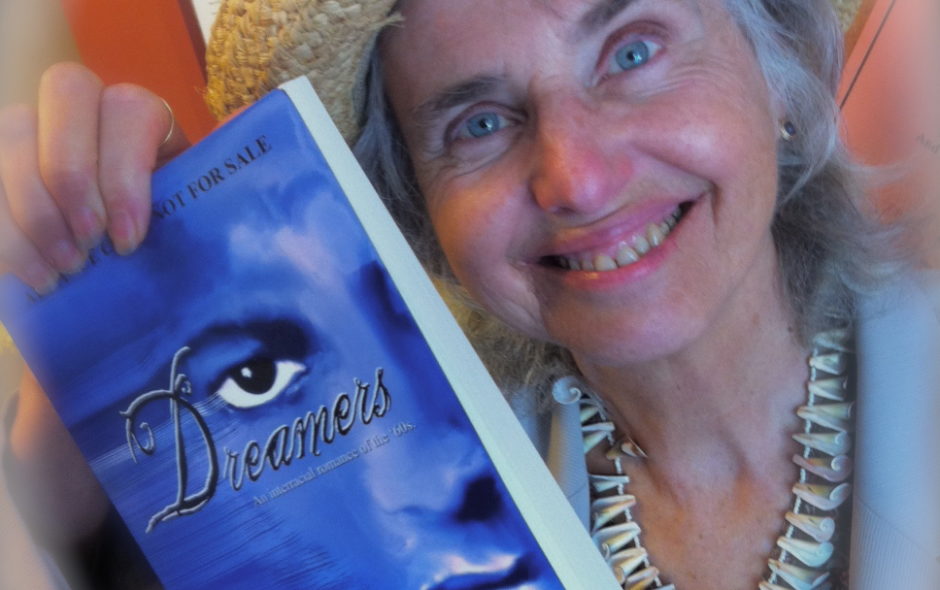A character can haunt you without you even knowing it, even when the story is finished, even after you’ve written it off! That’s what happened to me with Annie, the main character of Dreamers, after I saw The Late Quartet, a masterpiece of a movie about a string ensemble.
I wish I still had my violin. I just want to hold it.
The “late quartet “of the movie title is Beethoven’s Opus 131, String Quartet No. 14 in C-sharp minor, composed in 1826, one year before he died. In the movie, it is being prepared for presentation by the world-renown (fictional) Fugue Quartet, now in their 25th year playing together.
If the first violin part is the heart of the piece, the second part is its nerves, its soul. Robert, the second violinist, played brilliantly by actor Phillip Seymour Hoffman, offhandedly explains to a woman he’s soon to seduce that it’s not a competition thing between him and the first violinist, Daniel, just different. But in fact Robert lusts after the First Chair. He’s tired of Daniel, played by Mark Ivanir, calling all the shots for the Fugue’s performances. I can understand that.
I too played the violin, taking lessons from 4th through 9th grade. While pretending to practice diligently, I was actually reading novels. Up in my bedroom, my door closed tight, I sat on the edge of my bed mindlessly and repetitively sawing on my violin while reading books, looking over the moving bow, turning the pages one after the other between scales. I never was part of a string quartet, but after being stuck in the second violin section of the Wilkinsburg Junior Symphony for three years, I was thrilled to move over to the first violin section in 8th grade.
This all comes back to me now with Beethoven in the background. Watching the movie, I experience the grief of the cellist, Peter, the oldest Fugue member, played by Chris Walken, upon learning he has Parkinson’s Disease; the anger of Juliette, the violist, played by actress Catherine Keener, discovering Robert has betrayed her; the longing of Daniel for young love (who just happens to be Juliette and Robert’s daughter) and the passion of Robert for his marriage and his art. All together the quartet unleashes amazing, ferocious and yet gentle music in the high artscape of New York City, a place that Annie would have understood. After all she fled there like I did too.
But Annie would not have blown off her practice sessions. And she would surely not have remained with the second violins as long as I did. I loved the music, but honestly, it stayed in the background while I concentrated on fashion and style. Before each junior symphony concert, I spent hours getting ready, ironing my short, tight, black wool “orchestra” dress with the pearl buttons down the bodice, attaching my stockings to those cold metal clasps hanging from my new garter belt, slipping into my black, pointy high heels. I couldn’t wait for that moment when we all walked on stage holding our instruments, when the audience became silent and the conductor, Mr. Reichenfeld, put up his baton. Out came the elegant soloists, young musicians like myself, whom I envied for their inscrutable, focused faces and those perfect notes they played.
In his glowing review, the late, great movie critic Roger Ebert comments that A Late Quartet is a unique movie in that it actually shows professionals at work. And the way I imagine it, Juliette is the professional musician Annie would have become.
Forget Annie’s painful, confusing family, her star-crossed love affair with Thomas. Forget the fear and racial upheaval of the Civil Rights era in Pittsburgh and New York City. It’s her possibility for success as a professional violinist that excites me now, a possibility I gave up all thoughts of achieving myself.
I can see Annie playing Beethoven’s late quartet, Opus 131, on that grand stage. Annie does the work, stays the course. After all, she’s a graduate of Julliard, the same prestigious music school Daniel graduates from and where Peter teaches.
When you meet Annie in Dreamers, it’s during Christmas break. She’s practicing in her room when her father interrupts her to listen in. But who else listens? Who hears her play other than her family through her closed bedroom door? These are the thoughts I was having in my bedroom while I read my books.
Who’s listening to Annie? Not her embittered, dissolute teacher in Dreamers. Not Thomas, the actor she falls so much in love with. Only rich, addicted, openhearted Lana, Thomas’ ex-girlfriend, befriends Annie and demands to hear her music. I want to hear her music too.
Holding my violin, I will now open the door of my bedroom.


Rose Marie Wallace says:
Your experience with the “Late Quartet” connected me to my childhood experience with piano playing and reminded me of the wonderful romantic comedy “Impromptu” about Frederick Chopin and George Sand in the 1830’s. This movie was loaded with desire, longing and artistic creation. What great connections we get from art! Thanks for sharing your insight.
margaret says:
So great you left a comment. Now I get to thank you for lending me the CD of The Late Quartet to see in the first place! I’m not sure I’m going to give it back. I loved Impromptu too, Rose. I as well as my son, a pianist too,were really inspired by Chopin’s story and his music. Yes, great art is the best of life.